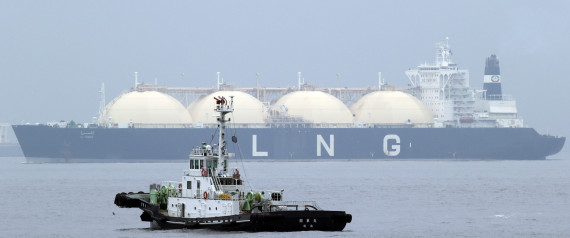
- Issuance of a key permit required for the development of the LNG Canada project by Shell is an exciting development, as it moves the project one step closer to fruition
- Facility permit from the B.C. Oil and Gas Commission outlines the requirements for design, construction and operation of the proposed liquefied natural gas facility in Kitimat, B.C.
- This alone does not guarantee the project will move forward, it is an indication that the proponents of the project still see benefits of establishing an LNG plant in B.C
The issuance of a key permit required for the development of the LNG Canada project by Shell is an exciting development, as it moves the project one step closer to fruition.
The facility permit from the B.C. Oil and Gas Commission outlines the requirements for design, construction and operation of the proposed liquefied natural gas facility in Kitimat, B.C. While this alone does not guarantee the project will move forward, it is an indication that the proponents of the project still see benefits of establishing an LNG plant in B.C.
These benefits are considerable: the climate of B.C.’s north coast is colder and therefore requires less energy to liquefy natural gas than in other areas, such as the Gulf Coast; there are abundant gas fields relatively close to the plant; the north west coast of B.C. is considerably closer to many markets than competing jurisdictions; and B.C. has an abundant supply of engineers, planners and construction workers that are fully capable of building and operating a complex plant.
Given the economic doldrums facing other resource-based sectors in B.C. with the collapse of oil prices and the malaise in the minerals and metals markets, the B.C. engineering community recognizes the importance of projects such as LNG Canada moving forward. For many firms, the development of an LNG industry will buffer the impact that the downturn of the resource sector is having.
B.C. engineers bring their technical knowledge and commitment to public safety to every stage of the LNG process. Engineers and geoscientists provide expertise in identifying sources of natural gas and in ensuring that the extraction of the natural gas is done safely and in accordance with the latest standards. Engineers specializing in natural gas projects design and monitor the construction and on-going operations of the pipelines that take the gas from the fields to the plants.
The liquefaction plants that will take the temperature of the gas to negative 160 degrees Celsius will be in done in strict accordance with international engineering standards. Even the ancillary infrastructure surrounding these plants will be designed by engineers to standards that are among the best in the world.
Once the gas is ready to be shipped, it will be loaded onto a tanker in port facilities that will be designed by engineers experienced in marine terminal design. Tanker routing is subject to the Transport Canada TERMPOL Review Process, involving over 20 in-depth studies, including navigation and risk assessments. Engineers play an integral role in identifying risks and developing strategies to mitigate these risks.
The attention to these details is reflected in the fact that since 1964, one LNG tanker has entered Tokyo harbour every 18 hours, and there has not been a single incident involving a tanker in that harbour in more than 50 years.
There is no doubt that the scope of the LNG Canada project is enormous. The liquefaction plant will cost up to $40 billion and the costs of the pipelines and the extraction will cost billions more. Against this scenario we have seen the price of natural gas drop from just under $6 to under $2.50 per million British thermal units.
The important consideration is that these are projects with a lifecycle of over 50 years. The odds are that given the growth in the world economy over time — and the increased demand from developing economies that require gas to not only power their growth, but also as a cleaner alternative to coal-power — there will be growing demand for LNG, and the investment today will be seen as a shrewd move in the years to come.
Keith Sashaw is president and CEO of the Association of Consulting Engineering Companies British Columbia (ACEC-BC).
Source: http://www.huffingtonpost.ca/keith-sashaw/lng-project-kitimat_b_9073114.html
Tags: #mining, #smallcapstocks, $TSXV, B.C Oil and Gas Commission, lithium, LNG Development, Shell